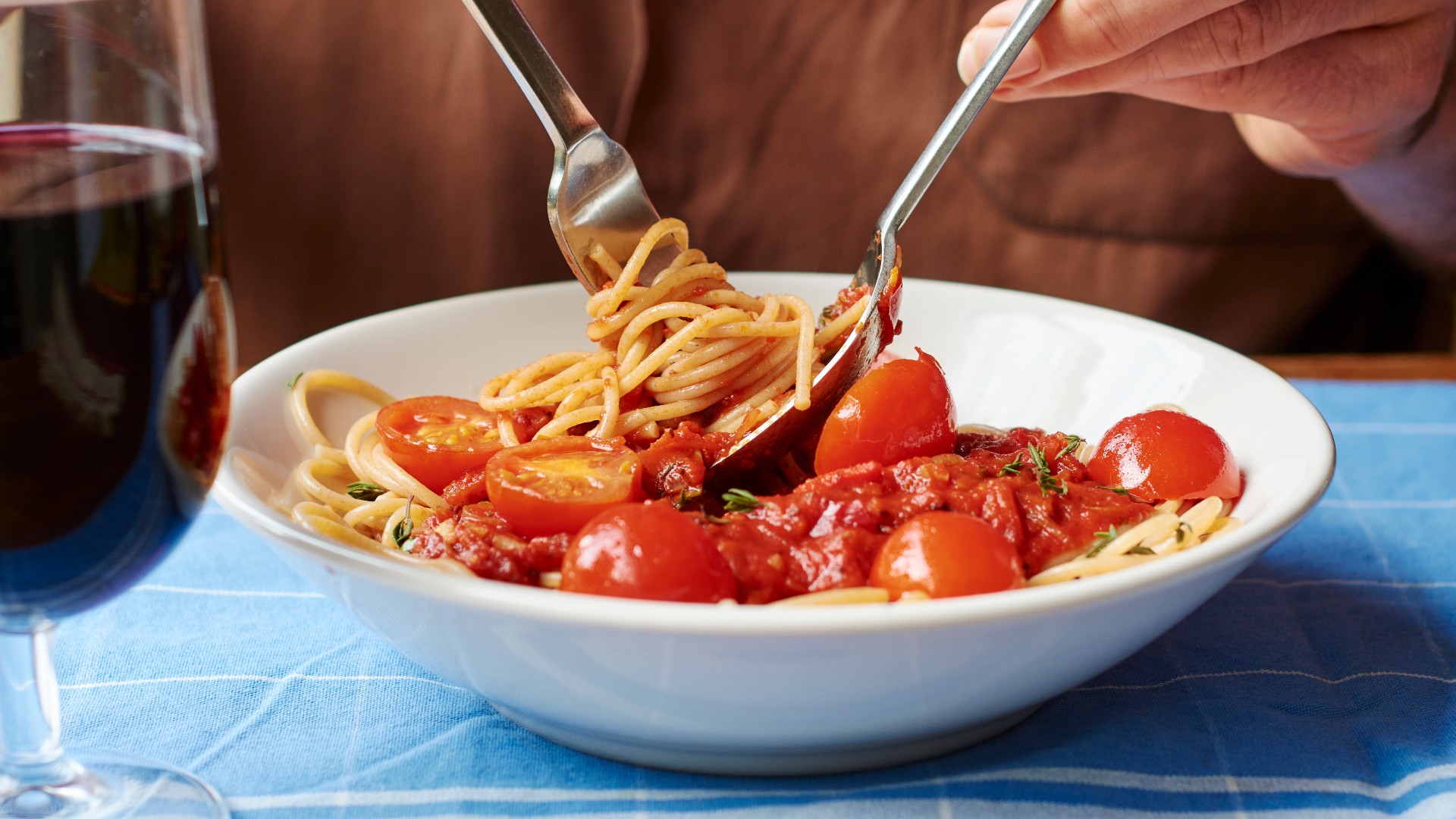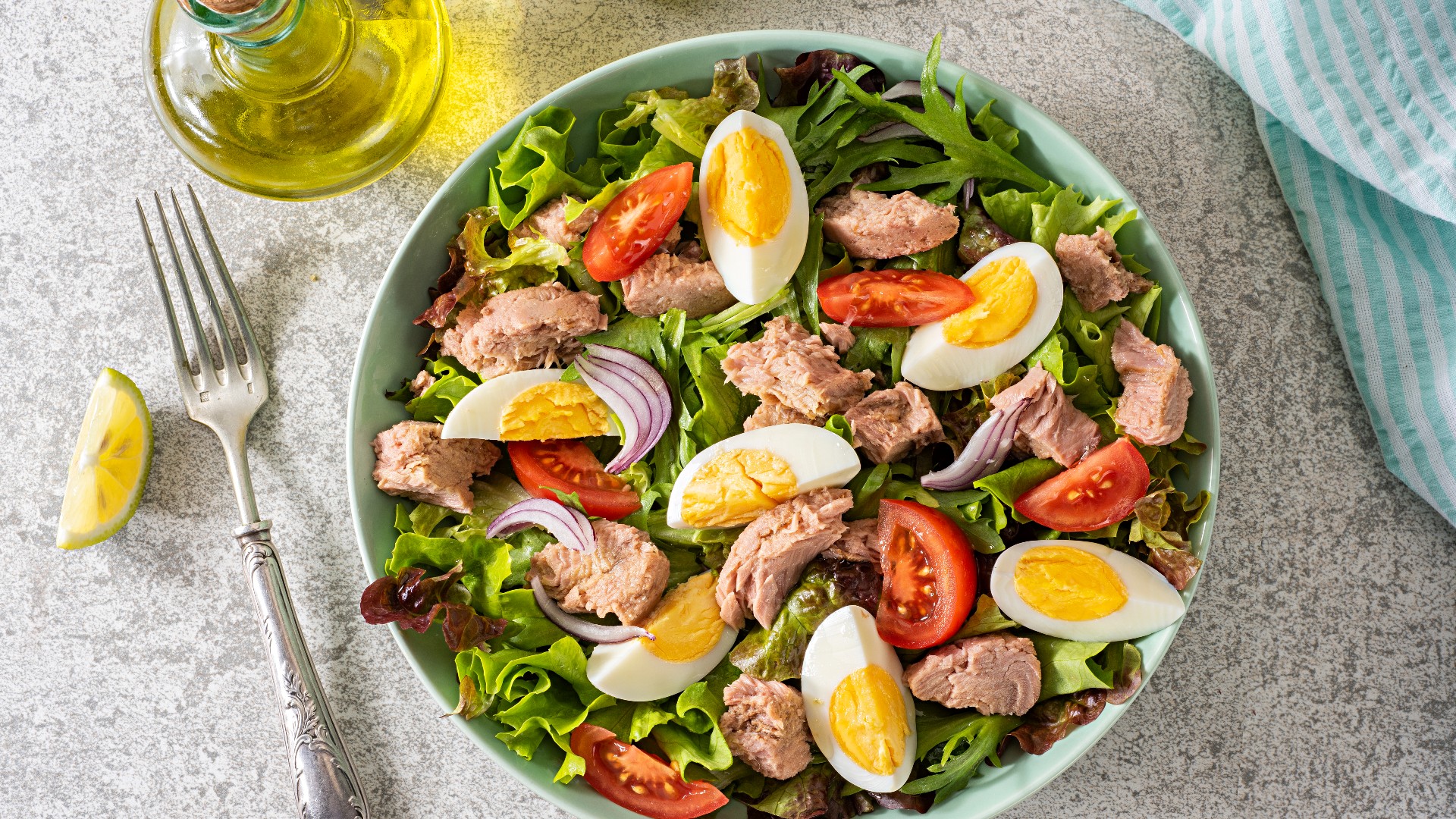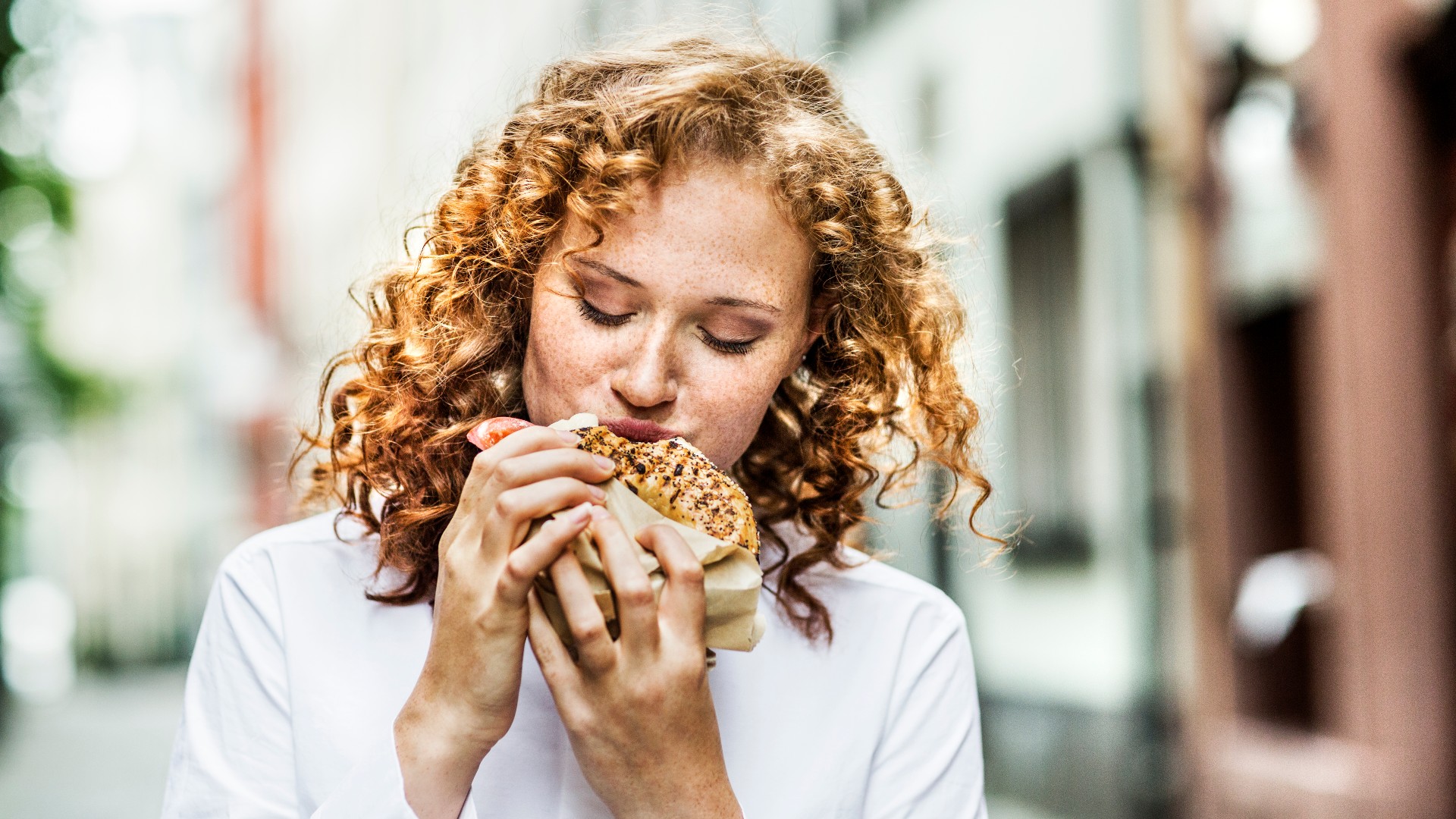Low carb vs high carb diets: what's best for weight loss and good health?
Cut-through the confusion as we breakdown the pros and cons of low carb vs high carb diets


Start your week with achievable workout ideas, health tips and wellbeing advice in your inbox.
You are now subscribed
Your newsletter sign-up was successful
If you’re on a weight loss mission - or simply wondering how to eat healthily - then you might be wondering what the deal is with carbs. Can you eat them? How much can you eat? Or should you ditch them all together?
It’s a carb-riddled minefield, which is why we’ve consulted the experts to help you make a sound decision on whether low-carb or high-carb diet plan is best for you when it comes to losing weight and eating well.
But first things first, what exactly constitutes a low-carb and high-carb diet?
Holland & Barrett nutritionist Alex Thompson explains that a low carb diet typically means eating no more than 5-10% of carbs in your diet to induce ketosis, ‘a metabolic state in which your body burns fat for energy instead of the carbs.’
Classic examples include the keto diet and the Atkins diet, which gained popularity in the nineties and noughties.
Studies have shown that a low-carb method can be effective in the short term, making it appealing to those looking to lose weight quickly. However, the long-term benefits have been questioned.
- How to lose weight with the keto diet: Can the ketogenic diet help you shed pounds easier?
- Best exercise machines to lose weight: a guide to the key equipment
- Weight loss: Five of the best strategies to lose weight fast revealed by researchers
At the other end of the scale, Alex explains: ‘Following a high carb diet means increasing carbohydrate intake in your diet, but lowering the amount of protein and fat you take in. Normally, carbohydrates are increased to at least 70% of the overall diet.’
Start your week with achievable workout ideas, health tips and wellbeing advice in your inbox.
Recent research has suggested that a high-carb approach can be beneficial for weight loss.
A 2015 study found that a low-fat diet is more effective for weight loss than a low-carb approach in obese adults.
These findings were echoed more recently by a study published in the journal Nutrients, which founds that diets high in carbohydrates reduce body weight and body fat and improve insulin function in overweight individuals.
The study's lead author, Hana Kahleova, M.D., Ph.D., said on its release: 'Fad diets often lead people to fear carbohydrates. But the research continues to show that healthy carbohydrates - from fruits, vegetables, beans, and whole grains - are the healthiest fuel for our bodies.'
Whichever approach you choose to adopt, there are pros and cons to both. Below, we outline everything you need to know about low-carb vs high-carb diets.
LOW-CARB DIET: THE PROS
Jamie Wright, nutritionist at Myprotein, has a MSc in Human Nutrition and is accredited by the Association for Nutrition. He reveals that one of the key low-carb diet pros is that your protein intake typically increases, which is great for managing hunger.
This is because protein is naturally satiating (i.e. it fills you up), which in turn can help stop you reaching for calorific snacks in-between meals.
A lack of carbs should also mean a greater amount of healthy fats and subsequent omega-3s, from foods including oily fish like salmon and tuna, and low-carb nuts such as Brazil, pecans and macadamia nuts.

These foods are also helpful if you're wondering how to lower cholesterol. That's because they naturally increase your high-density lipoprotein (HDL) cholesterol, the so-called 'good' cholesterol that helps remove other forms of cholesterol from your bloodstream.
Alex adds that low-carb diets can be a simple and effective way to lose weight due to the way they lower your insulin levels.
'Because carbohydrates release the hormone insulin, which is also the fat-storing hormone, cutting out carbs will help to reduce the insulin levels which will help you to shed weight.’
LOW-CARB DIET: THE CONS
There are several things to be wary of if considering a low carb diet.
Firstly, a low-carb diet is highly restrictive. Carbs are found in a lot of foods, from obvious eats such as bread, rice and pasta through to the not-so-obvious - things like some fruit, vegetables and even your favorite ice cream.
This means that cutting them from your diet can be tricky, and ultimately leave you feeling pretty moody.
A lack of carbs also means a lack of fiber. This is essential for a healthy digestive system, helping to reduce bloating, keep your skin clear, aid sleep and a balanced mood.
Plus, if you find yourself getting ’blocked up’ on a low-carb diet, a lack of fiber could be the reason.
Alex recommends that those on a low carb diet increase fiber from other sources like non-starchy vegetables (such as green vegetables) to still maintain good health and avoid issues such as constipation.
Looking to lose weight?
- How to lose weight from your face
- How to lose weight from your hips
- How to lose weight on your stomach
Low-carb diets often result in higher consumption of high-fat animal foods such as fatty meats. This can in turn lead to eating too much saturated fat, which elevates levels of low-density lipoprotein - the 'bad' cholesterol that clings to blood vessel walls, thus increasing the chances of cardiovascular disease and, in turn, heart attacks and strokes.
Carbs are also an important energy source, so without them you may find yourself feeling a little lethargic, with mental and physical fatigue leaving you desperate for sugary foods to keep you awake.
Finally, cutting out carbs doesn't necessarily result in a low-calorie diet, as you could still end up overeating in proteins and fat. ‘At the end of the day, if you consume more calories than you burn then you will gain weight,' warns Alex.
HIGH-CARB DIET: THE PROS

The obvious pro of a high carb diet is that it’s far less restrictive. And although you might think carbs are only found in bread, rice and grains, you couldn’t be more wrong. The delicious fruit salad you might tuck into at dessert? Yup, it’s a bowl of carbs. The vegetable casserole? Packed with carbs!
So not only is a high carb diet less restrictive, but it also typically results in a greater and more varied fruit and vegetable intake than a low-carb diet. And, we don’t need to tell you how beneficial a diet filled with fruits and vegetables is.
Carbs also provide energy, so if you're twinning your diet with regular workout sessions (as we all should) then consuming carbs will help fuel your workouts. You should aim to eat a mix of carbs, protein and healthy fat 2-3 hours before you train, and within one hour of finishing.
Jamie reveals that a higher carb diet is also higher in digestion-boosting fiber, which helps to lower bad cholesterol and increase good cholesterol.
Healthy-eating kitchen essentials:
- Best health grills for lean, mean meals
HIGH-CARB DIET: THE CONS
A high carb diet may have less of a protein focus, and protein is key for healthy muscle growth and maintenance, as well as helping with hair, bone and nail strength.
Plus, as previously mentioned, protein can help keep you fuller for longer, therefore helping to achieve and maintain weight loss.
A high carb diet can also mean a lower intake of healthy fats.
Another flaw of a high carb diet is that it doesn’t necessarily restrict processed, sugary foods, also known as refined carbohydrates.
Whilst these foods aren't inherently ‘bad’, they offer far fewer nutritional benefits for far more calories than their ‘healthier’ carb counterparts.
They can also leave you feeling hungry again very quickly thanks to their lack of fiber, which in turn can mean overeating and weight gain.
Alex says: ‘When going on a high carb diet, it’s important to choose foods which are considered low glycaemic index (GI) foods in order to keep blood glucose levels steady.’
LOW CARB VS HIGH CARB: THE FINAL SAY
Clearly there are pros and cons to both low carb and high carb diets. But which is best? Ultimately, it comes down to your individual needs.
Jamie explains that there is no ‘best’ approach overall per sé, but there may be a best approach for you. This echoes the research findings around the subject.
‘When they’ve been investigated for weight loss, both have been successful,' he says. 'However, when it comes to maintaining that weight loss, it really comes down to the person’s individual preference and how well the approach suits them.’
After all, if it’s a lifestyle change you’re after, it needs to be something that you can and want to follow.
Low carb can leave you tired fatigued, whilst high carb can provide you with plenty of energy as well as fibre. However high carb can also mean eating more refined foods, which don’t provide any nutritional benefits whilst low carb allows for eating more protein and healthy fats - so you need to be mindful of this when planning your meals.
Lucy is a freelance journalist specializing in health, fitness and lifestyle. She was previously the Health and Fitness Editor across various women's magazines, including Woman&Home, Woman and Woman’s Own as well as Editor of Feel Good You. She has also previously written for titles including Now, Look, Cosmopolitan, GQ, Red and The Sun.
She lives and breathes all things fitness; working out every morning with a mix of running, weights, boxing and long walks. Lucy is a Level 3 personal trainer and teaches classes at various London studios. Plus, she's pre- and post-natal trained and helps new mums get back into fitness after the birth of their baby. Lucy claims that good sleep, plenty of food and a healthy gut (seriously, it's an obsession) are the key to maintaining energy and exercising efficiently. Saying this, she's partial to many classes of champagne and tequila on the rocks whilst out with her friends.
